第81章 CHAPTER I(3)
Good! Another amorous woman! Thibaud-la-Thibaude, neither more nor less! For having come from the Rue Glatigny! What fellow is this? Gieffroy Mabonne, gendarme bearing the crossbow. He has cursed the name of the Father. A fine for la Thibaude! A fine for Gieffroy! Afine for them both! The deaf old fool! he must have mixed up the two cases! Ten to one that he makes the wench pay for the oath and the gendarme for the amour! Attention, Robin Poussepain! What are they going to bring in? Here are many sergeants! By Jupiter! all the bloodhounds of the pack are there. It must be the great beast of the hunt--a wild boar. And 'tis one, Robin, 'tis one. And a fine one too!
~Hercle~! 'tis our prince of yesterday, our Pope of the Fools, our bellringer, our one-eyed man, our hunchback, our grimace!
'Tis Quasimodo!"
It was he indeed.
It was Quasimodo, bound, encircled, roped, pinioned, and under good guard. The squad of policemen who surrounded him was assisted by the chevalier of the watch in person, wearing the arms of France embroidered on his breast, and the arms of the city on his back. There was nothing, however, about Quasimodo, except his deformity, which could justify the display of halberds and arquebuses; he was gloomy, silent, and tranquil. Only now and then did his single eye cast a sly and wrathful glance upon the bonds with which he was loaded.
He cast the same glance about him, but it was so dull and sleepy that the women only pointed him out to each other in derision.
Meanwhile Master Florian, the auditor, turned over attentively the document in the complaint entered against Quasimodo, which the clerk handed him, and, having thus glanced at it, appeared to reflect for a moment. Thanks to this precaution, which he always was careful to take at the moment when on the point of beginning an examination, he knew beforehand the names, titles, and misdeeds of the accused, made cut and dried responses to questions foreseen, and succeeded in extricating himself from all the windings of the interrogation without allowing his deafness to be too apparent. The written charges were to him what the dog is to the blind man. If his deafness did happen to betray him here and there, by some incoherent apostrophe or some unintelligible question, it passed for profundity with some, and for imbecility with others. In neither case did the honor of the magistracy sustain any injury; for it is far better that a judge should be reputed imbecile or profound than deaf. Hence he took great care to conceal his deafness from the eyes of all, and he generally succeeded so well that he had reached the point of deluding himself, which is, by the way, easier than is supposed. All hunchbacks walk with their heads held high, all stutterers harangue, all deaf people speak low. As for him, he believed, at the most, that his ear was a little refractory. It was the sole concession which he made on this point to public opinion, in his moments of frankness and examination of his conscience.
Having, then, thoroughly ruminated Quasimodo's affair, he threw back his head and half closed his eyes, for the sake of more majesty and impartiality, so that, at that moment, he was both deaf and blind. A double condition, without which no judge is perfect. It was in this magisterial attitude that he began the examination.
"Your name?"
Now this was a case which had not been "provided for by law," where a deaf man should be obliged to question a deaf man.
Quasimodo, whom nothing warned that a question had been addressed to him, continued to stare intently at the judge, and made no reply. The judge, being deaf, and being in no way warned of the deafness of the accused, thought that the latter had answered, as all accused do in general, and therefore he pursued, with his mechanical and stupid self-possession,--"Very well. And your age?"
Again Quasimodo made no reply to this question. The judge supposed that it had been replied to, and continued,--"Now, your profession?"
Still the same silence. The spectators had begun, meanwhile, to whisper together, and to exchange glances.
"That will do," went on the imperturbable auditor, when he supposed that the accused had finished his third reply. "You are accused before us, ~primo~, of nocturnal disturbance;~secundo~, of a dishonorable act of violence upon the person of a foolish woman, ~in proejudicium meretricis; tertio~, of rebellion and disloyalty towards the archers of the police of our lord, the king. Explain yourself upon all these points.---Clerk, have you written down what the prisoner has said thus far?"At this unlucky question, a burst of laughter rose from the clerk's table caught by the audience, so violent, so wild, so contagious, so universal, that the two deaf men were forced to perceive it. Quasimodo turned round, shrugging his hump with disdain, while Master Florian, equally astonished, and supposing that the laughter of the spectators had been provoked by some irreverent reply from the accused, rendered visible to him by that shrug of the shoulders, apostrophized him indignantly,--"You have uttered a reply, knave, which deserves the halter.
Do you know to whom you are speaking?"
This sally was not fitted to arrest the explosion of general merriment. It struck all as so whimsical, and so ridiculous, that the wild laughter even attacked the sergeants of the Parloi-aux-Bourgeois, a sort of pikemen, whose stupidity was part of their uniform. Quasimodo alone preserved his seriousness, for the good reason that he understood nothing of what was going on around him. The judge, more and more irritated, thought it his duty to continue in the same tone, hoping thereby to strike the accused with a terror which should react upon the audience, and bring it back to respect.